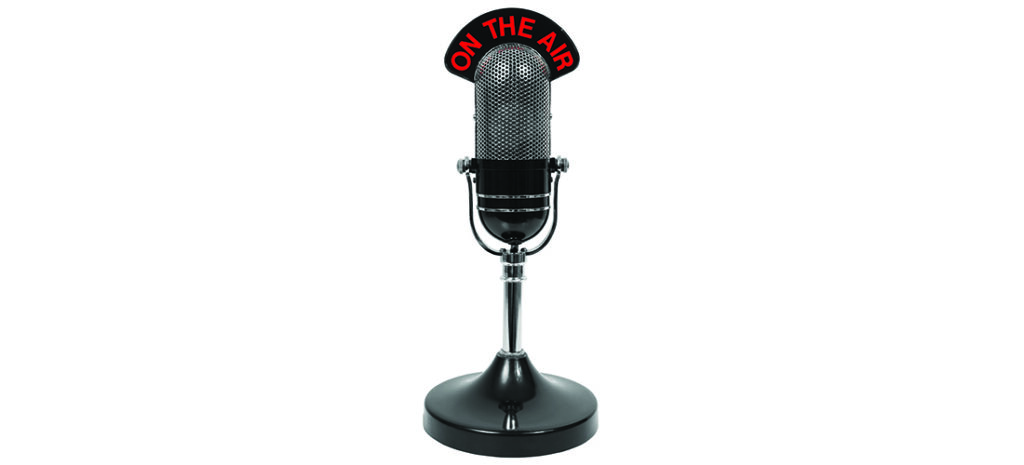Hometown

Hey, Where Did We Go?
Down the old mine with a transistor radio
Occasionally during a New England winter, if I am in the car after dark and know North Carolina has a basketball contest that evening, I will abandon SiriusXM for old-fashioned AM and tune the dial to 1110 WBT in Charlotte. The 50,000-watt station’s old boast that it could be heard from “Maine to Miami” is still true, some static notwithstanding, and hearing the Tar Heels play takes me back to when listening to games was nearly as important as playing them.
Sports on the radio was a year-round pleasure when I was a child. There were baseball games from spring into fall, reception at the mercy of the signal and the atmosphere. When conditions were such that I could hear announcers from stations in Chicago or St. Louis, many hundreds of miles from our house in Southern Pines, it felt like there was something more powerful at work than a couple of Eveready C-cell batteries.
Wintertime meant there were basketball games on the radio, though, and I devoured anything revolving around my — and the region’s — favorite sport. I was listening to hoops over the air before I started elementary school. One of my earliest memories is hearing the exploits of a star guard for N.C. State in the mid-1960s. Eddie Bidenbach was a mouthful for the Wolfpack radio voices.
I was fascinated by the faraway hometowns of some of the players when starting lineups were introduced: Duke’s Bob Verga of Sea Girt, New Jersey, and fellow Blue Devil Mike Lewis from Missoula, Montana. My first basketball hero, Carolina’s Larry Miller, master of pump fakes and scoop shots while maneuvering toward the basket, hailed from Catasauqua, Pennsylvania, a borough that sounded as exotic as some of Miller’s moves.
The man who called Carolina’s games on the radio during the 1960s was as inventive as number 44 in light blue and white, which made each broadcast an adventure regardless of the plot of the game. Bill Currie’s nickname, “The Mouth of the South,” was well earned. Currie, voice of the Tar Heels from 1962 to 1971 after forming the school’s radio network, was cut from a different cloth.
“Sports announcers nowadays are about as colorless as a glass of gin,” Currie told Sports Illustrated in 1968. “They are so immersed in themselves, so determined to pontificate about what really is nothing more than a game that they have forgotten that sports are supposed to be fun.”
Currie never forgot, infusing his broadcasts with a whole lot of this and that about what wasn’t happening on the 94-foot-long basketball court — especially during one-sided games. In a strong Southern accent reflecting his High Point roots, Currie critiqued what folks were wearing or the quality of an arena’s concessions. He interviewed fans, recited poetry, and talked about current events. Currie’s unique style made other announcers seem as if they were narrating a funeral procession. During a 1968 ACC Tournament game when State beat Duke 12-10 after both teams went into deep slowdowns at a time well before a shot clock, Currie described the play as “having all the thrill of artificial insemination.”
The irreverence went north in 1971 when Currie took a television job at KDKA in Pittsburgh. I spent the rest of my youth listening to his more businesslike and traditional successor, Woody Durham, call Tar Heels games. It didn’t take Durham long to build a strong relationship with his audience, and his 40 years behind the mic made Currie’s run seem like a cup of coffee.
For all the pleasure that the college basketball games provided on those winter evenings as I huddled with my transistor radio, there were a couple of games a week on television thanks to the C.D. Chesley network. Radio was all I had for Carolina Cougars games, and I listened to Bob Lamey call most of their American Basketball Association schedule. The ABA lineups became second nature to me, whether the Cougars were up against the Pittsburgh Condors, Virginia Squires or Kentucky Colonels. The sound of sneakers on hardwood in some of those less-than-sold-out gyms made it feel like I was beside Lamey courtside.
Listening to so many Cougars games paid off for me on March 18, 1972, when they hosted the Memphis Pros in Greensboro. None other than Larry Miller lit it up for the home team, finishing with an ABA record of 67 points, and I happily heard every one of them. PS
Southern Pines native Bill Fields, who writes about golf and other things, moved north in 1986 but hasn’t lost his accent.
